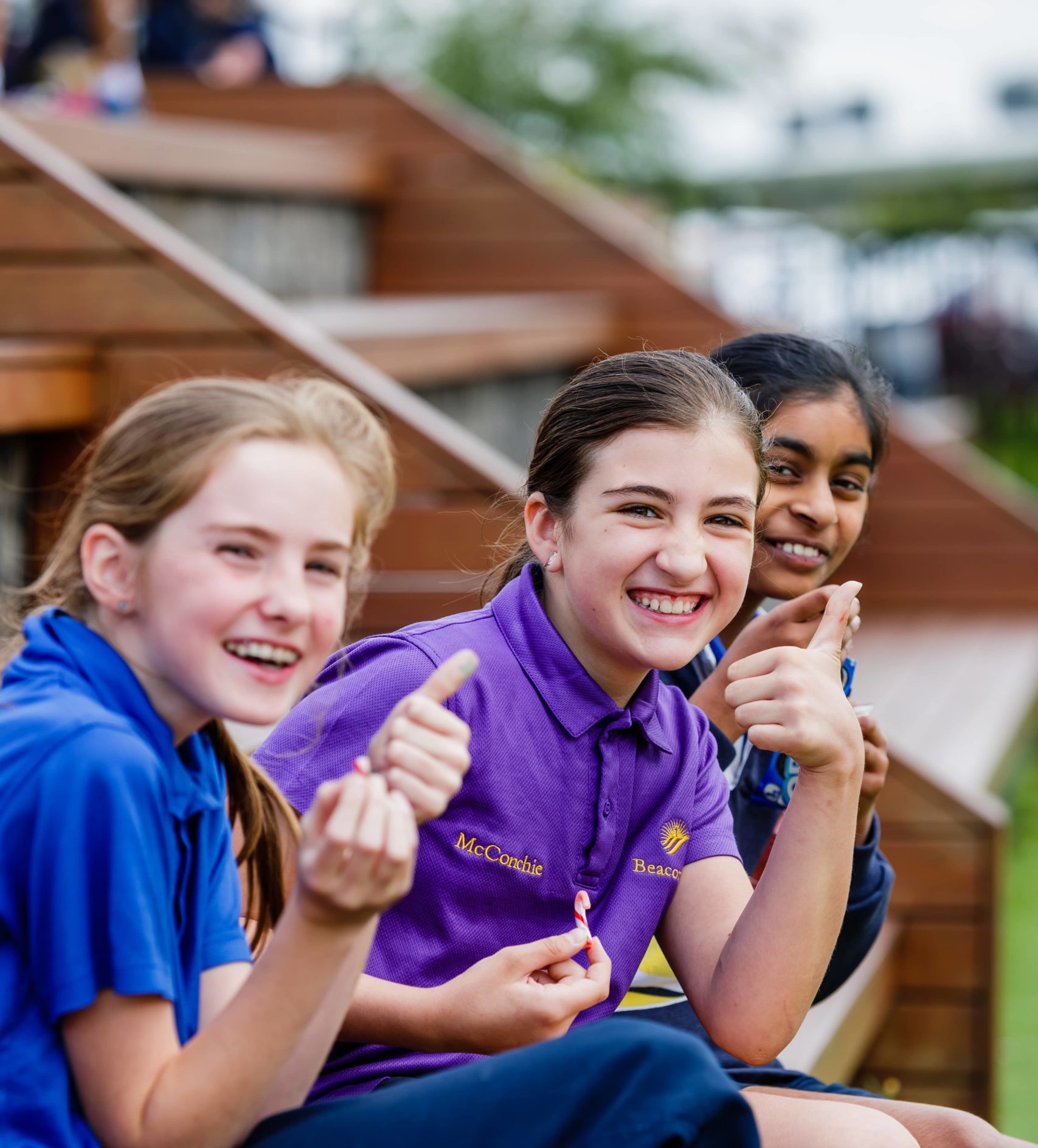Our global community
Our global community
A genuine commitment to diversity
For more than 30 years, we have built relationships across the globe. Our students have learnt new languages. They have hosted overseas students. Students from many countries have visited and studied at our school. Our service and cultural programs, both here and abroad, have enriched lives in many ways.
As a diverse community, Beaconhills College celebrates and embraces cultural learning, respect and understanding.
We aim to embed a deep understanding of Australian Indigenous culture throughout every year level. Even our youngest students in Little Beacons enjoy language and cultural learning in their Early Explorers (bush kinder) program out on Country on school grounds.
Beaconhills’ international service and language programs give our students exciting opportunities for cultural learning, a life-changing experience for many. Hosting international students from across the world means Beaconhills families have the chance to appreciate and understand ways of life other than their own.
Indigenous initiatives
Our Reconciliation Action Plan (RAP) aims to build relationships with Indigenous people and communities, to embrace diversity and improve understanding.
Beaconhills College acknowledges that the Aboriginal and Torres Strait Islander people of Australia are the original custodians of this land. We recognise that education is the key to unlocking our understanding of Indigenous Australia and seek to explore what reconciliation means at Beaconhills College.
It is hoped the RAP will help improve our students’ understanding of our shared histories and gain a greater appreciation of the contributions of Aboriginal and Torres Strait Islander people.
Language and cultural exchange programs
College families have for many years hosted students from across the globe visiting for short and long term study programs.
In turn, our students joined a variety of cultural exchanges, language programs or international ‘Global Beacons’ experiences in countries such as Japan, France, USA, New Caledonia, East Timor and Borneo.
They have learned to understand and appreciate cultural differences. The benefits this has brought to their lives, personally and professionally, have been immeasurable.
